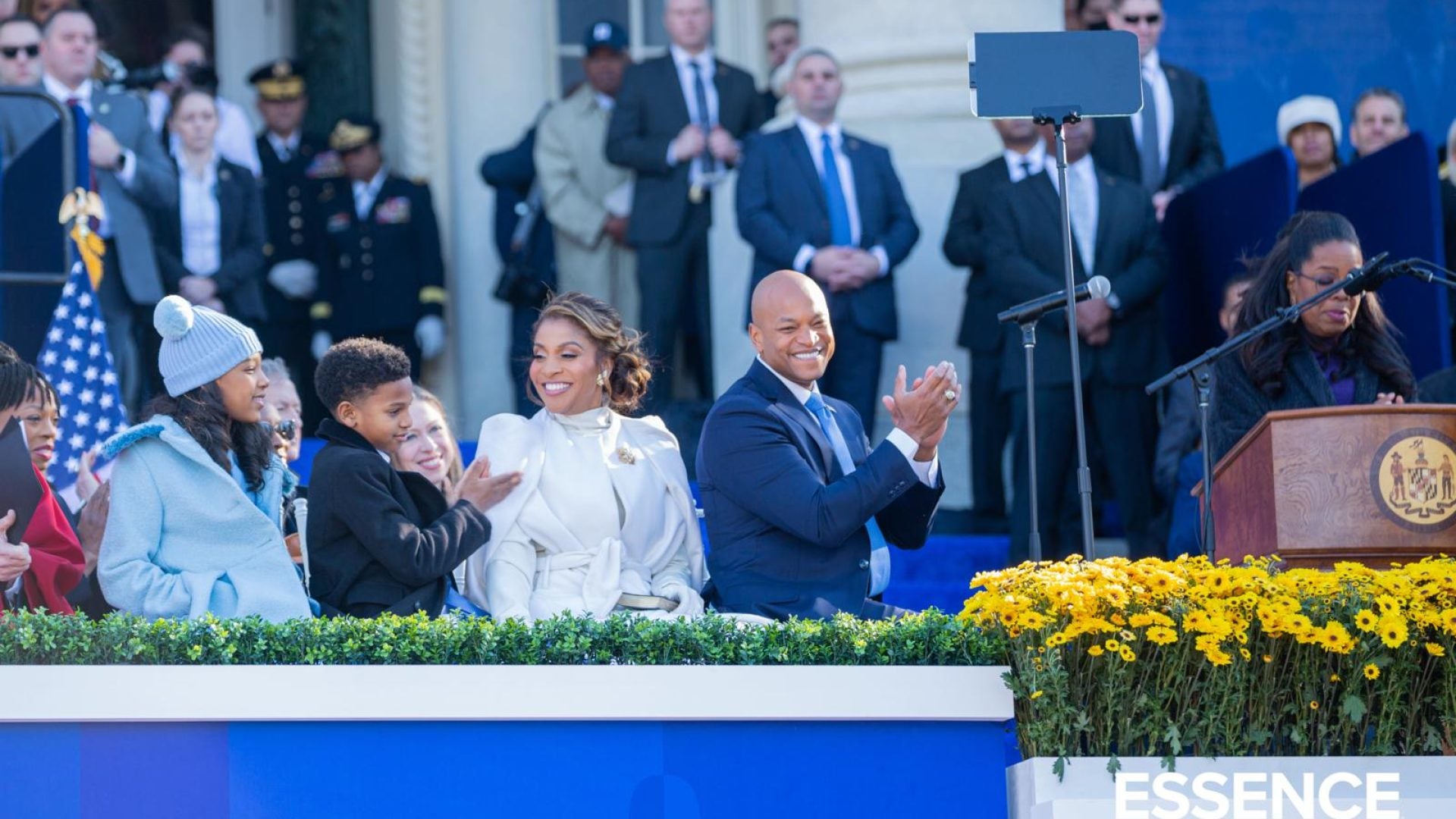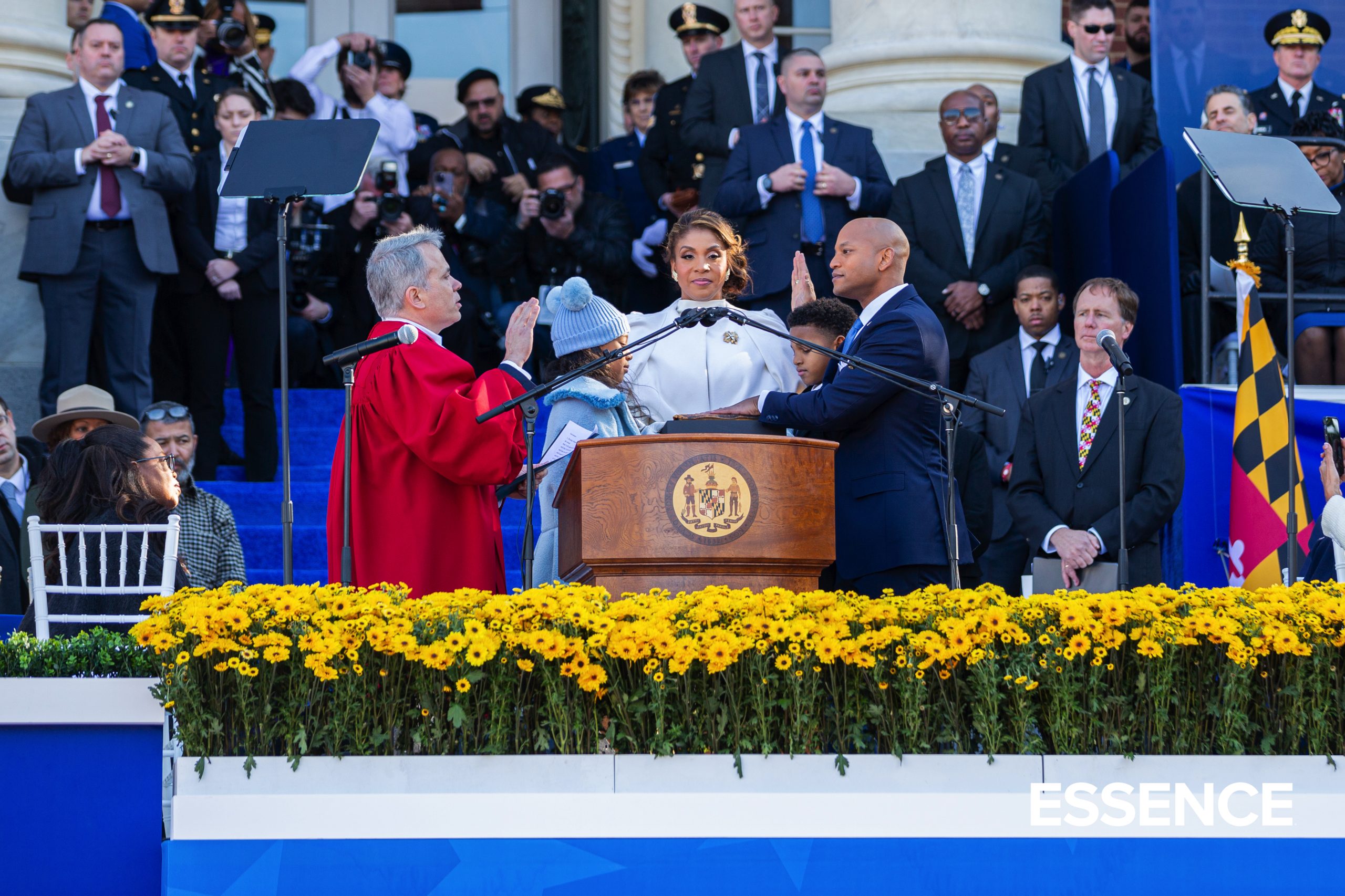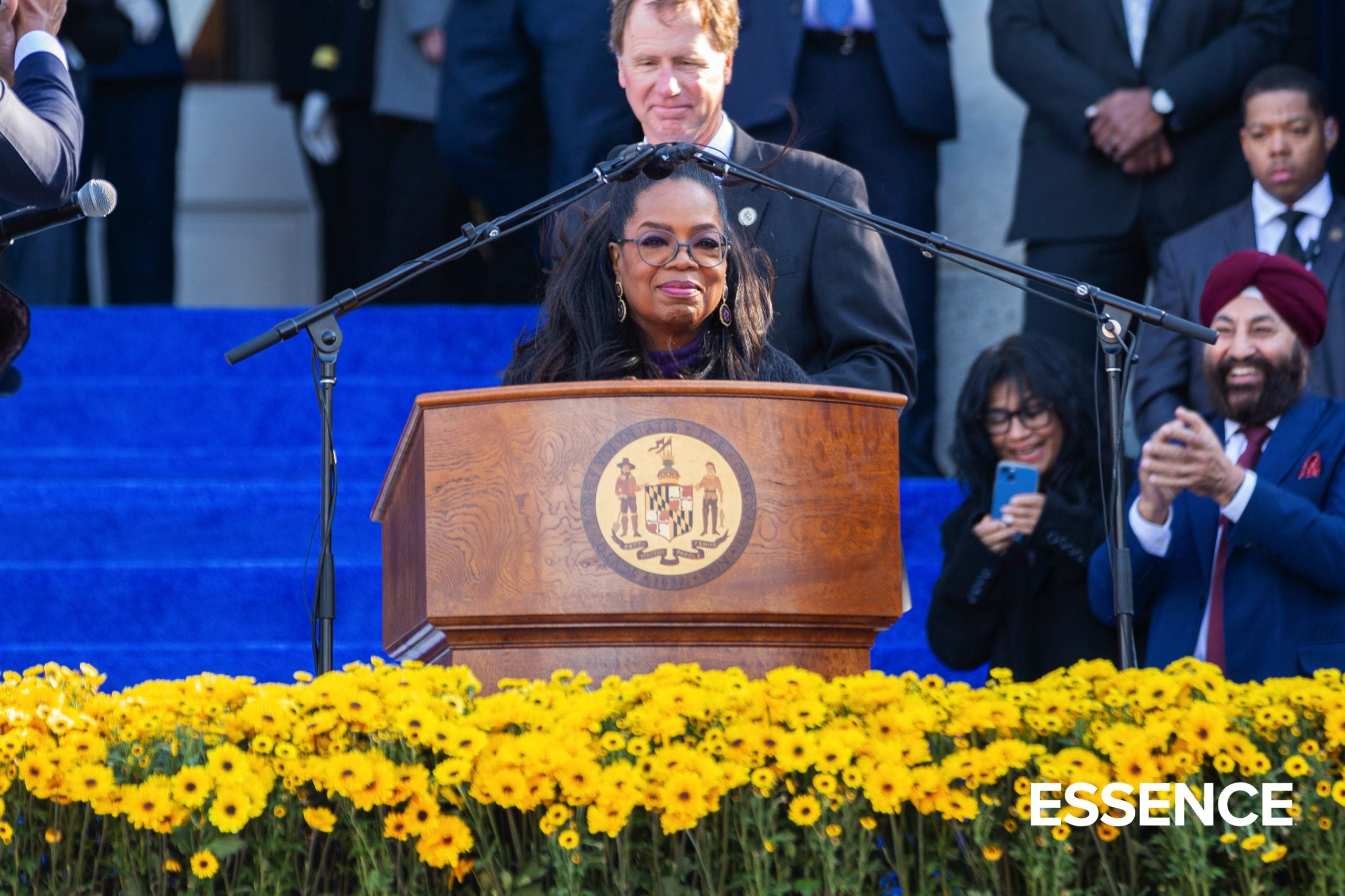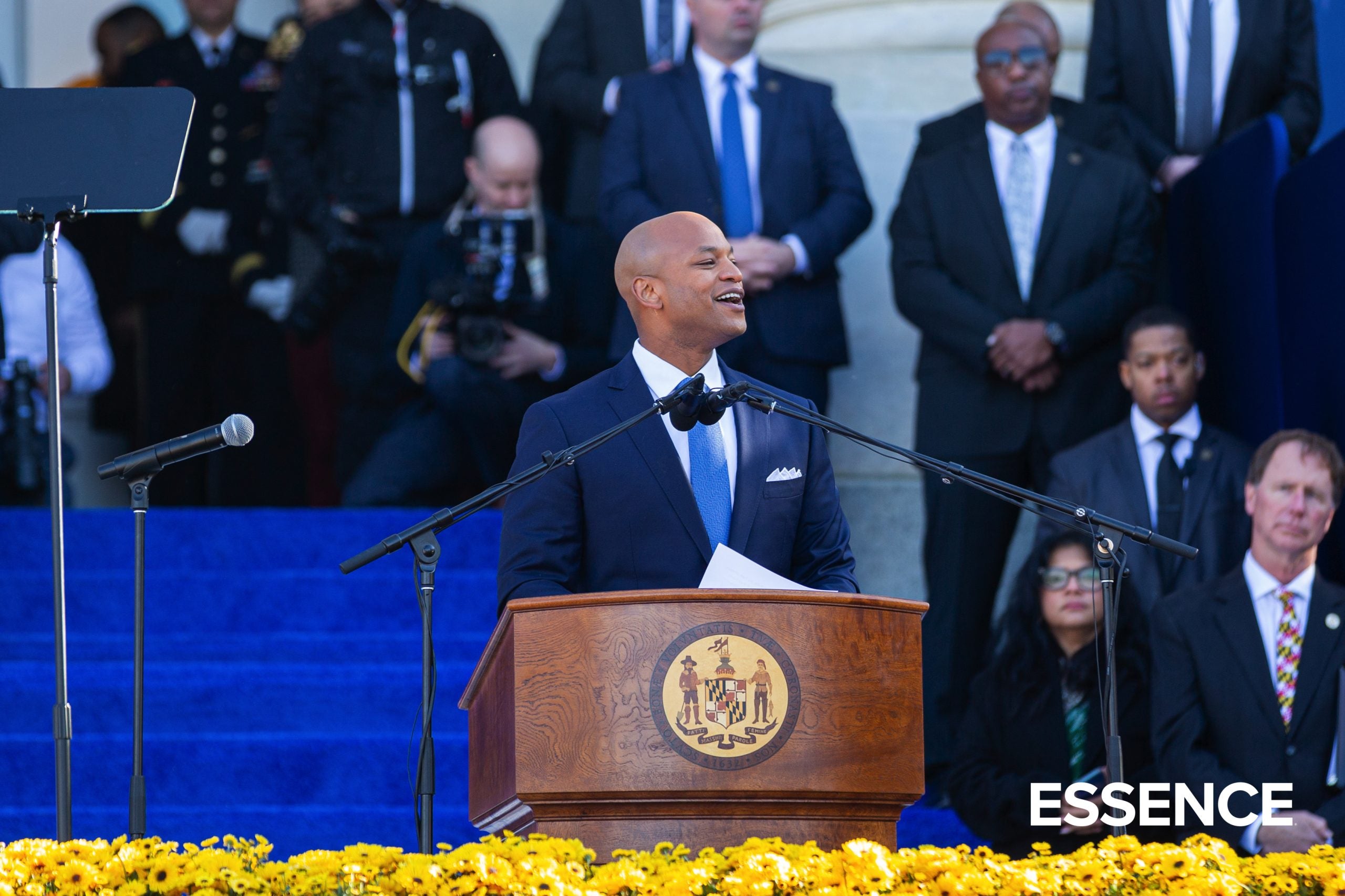
ANNAPOLIS, Md. – Wes Moore had his left hand firmly placed on a Bible that once belonged to famed abolitionist Frederick Douglass. With his right hand raised, he created a new page in the history books as he took the oath of office, becoming Maryland’s first Black governor and only the third Black governor elected in the history of the United States.
Moore was sworn in alongside his family, new Lt. Gov. Aruna Miller and state lawmakers inside the Senate chamber of the Maryland State House in Annapolis before taking the oath of office once more during a public ceremony outside the historic building before a large cheering crowd.

“Today is not the victory — today is the opportunity,” Moore said in his inaugural remarks. “An opportunity to lead with love. An opportunity to create with compassion. An opportunity to fight fearlessly for our future.”
The new governor addressed the crowd following a soul-stirring performance of “God Bless America” by the Morgan State University Choir, a ceremonial 19-gun salute and inaugural flyover and a heart warming introduction by Oprah Winfrey, who began her epic media career in Maryland.
In his address, Moore reiterated several themes he spoke about during his campaign, including his view that the state– which is one of the wealthiest in the nation– is “asset-rich but strategy-poor.” He outlined some key policy priorities on child poverty, the economy, climate change and crime that he says will address those issues. Going forward, Moore said that Maryland will leave no one behind.

Moore’s inauguration was punctuated by references to Black history. Among those were the acknowledgement of the enslaved Africans who once arrived by ship to Maryland’s shores and the Baltimore native who became the first Black justice in the U.S. Supreme Court.
“As we stand here today, looking out over Lawyers’ Mall, and you can see right there the memorial to Justice Thurgood Marshall, it’s impossible not to think about our past and our path,” he said. “We’re blocks away from the Annapolis docks, where so many enslaved people arrived in this country against their will. And we are standing in front of a capitol that was built by their hands.”
The Maryland native began inauguration day with a wreath-laying ceremony at the Annapolis City Dock. The dock is also home to a memorial to Kunta Kinte and Alex Haley, who wrote “Roots” about his enslaved ancestor. It has been designated as a “site of memory,” honoring those Africans who came to Maryland after crossing the Atlantic during the Middle Passage.
Moore also reflected on what it means to be elected Maryland’s first Black governor in an interview just hours before being sworn-in.
“It’s humbling because I know the history. I know the history of the state and I fully appreciate it. I’m thankful for the fact that I’m able to break through a wall because many people have been working to create cracks in it for many, many years. And many, many generations,” Moore tells ESSENCE.
However, he noted that his goal was not to make history but to move Maryland forward. “They voted for me because they knew or they felt that I was the person that can help to address the issues in their lives,” he says.
During his inaugural remarks Moore also acknowledged his mother Joy Moore, who immigrated to the U.S. from Jamaica and Lt. Gov. Aruna Miller’s mother, Hema who like Miller immigrated from India. He also shared why it’s so important for him to show pride in being a Caribbean American.
We’re blocks away from the Annapolis docks, where so many enslaved people arrived in this country against their will. And we are standing in front of a capitol that was built by their hands.”
“I’m very proud of my Caribbean history and heritage. It matters deeply to me because I think of that spirit, you know of my mom and my grandpa and that runs through me. I’m proud of that history. I’m proud to say that I’m the child of an immigrant from Jamaica and it’s something that I know has helped to guide my life,” Moore tells ESSENCE.
The 44-year-old Democrat and political newcomer is an army veteran, best-selling author and former non-profit executive. He won a landslide victory over Republican Dan Cox last November. Moore’s 32-percentage-point victory over Cox marked the largest winning margin for any governor in the state in nearly four decades.
Moore’s win was punctuated by the victory of another Black elected official, with Anthony Brown becoming the state’s first Black Attorney General. They now join the state’s treasurer, Dereck E. Davis and House Speaker, Adrienne A. Jones, both of whom are Black, representing an unprecedented concentration of Black state-level power.
The state’s economy will be a priority for Moore as he takes office, and he says that “we do not have to choose between a competitive economy and an equitable one.”

He continued by outlining some of his plans, including his desire to enact a $15 minimum wage, his emphasis on clean energy, cybersecurity, and police reform, as well as other ideas like increasing funding for youth mental health programs.
“Now is the time for us to march forward and to march as one, and let us march on until victory is won.”





